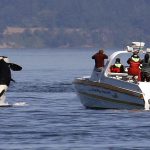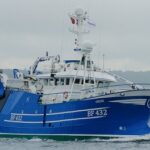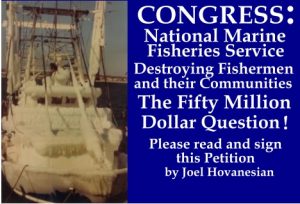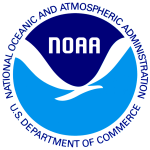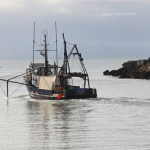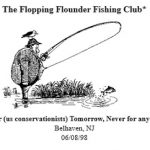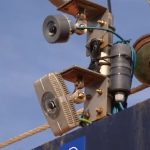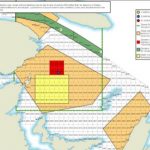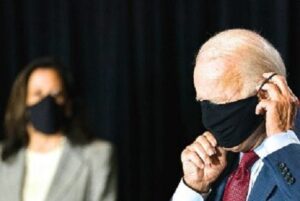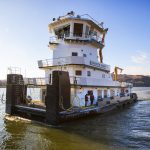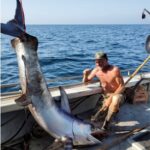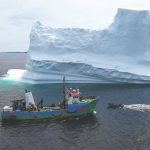Monthly Archives: February 2013
Cape Wind hopes loan not blown
 “This is another huge waste of taxpayer dollars for a project that will never get built,” said Audra Parker, head of the Alliance to Protect Nantucket Sound, who cited ongoing appeals and lawsuits still dogging the project that’s been in the works since 2001. The estimated $2.6 billion project is still targeting a construction start by the end of this year. Rodgers declined to describe Cape Wind’s success in securing private financing. Read more here
“This is another huge waste of taxpayer dollars for a project that will never get built,” said Audra Parker, head of the Alliance to Protect Nantucket Sound, who cited ongoing appeals and lawsuits still dogging the project that’s been in the works since 2001. The estimated $2.6 billion project is still targeting a construction start by the end of this year. Rodgers declined to describe Cape Wind’s success in securing private financing. Read more here
Math teacher spends summers salmon fishing in Alaska’s Bristol Bay

The Turlock Journal
But after nine long months in the classroom trying to reach sometimes apathetic students, he is ready to go back his roots — commercial salmon fishing. “I’ve been on a boat since I was nine, every single summer; it’s kind of in my blood,” Schollenberg said. Read more here
Drakes Bay Oyster Co. seeks quick ruling on closure battle
 Attorneys for Drakes Bay Oyster Company have asked a federal judge to rule Monday on their request to postpone a Feb. 28 deadline for shutting down the business in Marin County’s Point Reyes National Seashore.The legal action was set in motion by Interior Secretary Ken Salazar’s decision Nov. 29 not to renew a long-term lease that gave Lunny the right to plant and harvest oysters in 2,500-acre Drakes Estero. Read more here
Attorneys for Drakes Bay Oyster Company have asked a federal judge to rule Monday on their request to postpone a Feb. 28 deadline for shutting down the business in Marin County’s Point Reyes National Seashore.The legal action was set in motion by Interior Secretary Ken Salazar’s decision Nov. 29 not to renew a long-term lease that gave Lunny the right to plant and harvest oysters in 2,500-acre Drakes Estero. Read more here
Comeback of scup a lifeline for New Jersey fishermen
 Some call them scup and some call them porgy. Right now, fishermen in the Port of Cape May are calling them a lifeline. Read more here
Some call them scup and some call them porgy. Right now, fishermen in the Port of Cape May are calling them a lifeline. Read more here
Pew on retailers using MSC logo: We’d prefer they didn’t use word ‘sustainable’
 “We would prefer they didn’t use the word sustainable,” said Gerry Leape, an oceans specialist at the Pew Environment Group, one of the major foundations working on oceans policies. Leape has supported the MSC for more than a decade as a member of its advisory Stakeholder Council. But he and other said the MSC system has been certifying some fisheries despite evidence that the target fish are in trouble, or that the fishing industry is harming the environment. Link is here
“We would prefer they didn’t use the word sustainable,” said Gerry Leape, an oceans specialist at the Pew Environment Group, one of the major foundations working on oceans policies. Leape has supported the MSC for more than a decade as a member of its advisory Stakeholder Council. But he and other said the MSC system has been certifying some fisheries despite evidence that the target fish are in trouble, or that the fishing industry is harming the environment. Link is here
American Samoa – Comments welcomed on coral species listing
A team from NOAA Fisheries held a public hearing in American Samoa back in August and the majority of those who attended expressed concerns about the social, cultural and economic impact the listing would have on fishing activities in the territory. NOAA is now requesting public comment on the proposed rule and will review the comments received for any additional information before a final decision is made. Read more here
Editorial: Fed lawmakers must look beyond boat monitor costs
 As lawmakers step up the pressure to secure NOAA funding for the failing monitors’ program, it’s also important that they not lose sight of a far bigger picture as the new Congress takes its early steps forward regarding ocean policy. Read more here
As lawmakers step up the pressure to secure NOAA funding for the failing monitors’ program, it’s also important that they not lose sight of a far bigger picture as the new Congress takes its early steps forward regarding ocean policy. Read more here
Attorney: Alaska Native fishermen should get first go at kings
 An attorney for Alaska Natives cited for illegal fishing is renewing his religious protection defense, saying the state could conserve king salmon runs on the Kuskokwim River while granting Yup’ik Eskimos a subsistence fishing priority to accommodate their long-held spiritual views. Read more here
An attorney for Alaska Natives cited for illegal fishing is renewing his religious protection defense, saying the state could conserve king salmon runs on the Kuskokwim River while granting Yup’ik Eskimos a subsistence fishing priority to accommodate their long-held spiritual views. Read more here
Alaska – National Marine Fisheries Service rejects Center for Biological Diversity petition to list cold-water corals
A federal agency has rejected a petition seeking to list 44 cold water corals off Alaska as threatened or endangered. An environmental group says the corals are threatened by commercial fishing, ocean warming, acidification and oil spills. Read more here
NORTHEAST MULTISPECIES Announcement of approved dockside and at-sea monitoring providers for 2013. Effective Date: May 1, 2013
 NOAA Fisheries has approved four companies to provide at-sea monitoring services and three companies to provide dockside monitoring services in the 2013 Fishing Year, which begins on May 1. Read more here
NOAA Fisheries has approved four companies to provide at-sea monitoring services and three companies to provide dockside monitoring services in the 2013 Fishing Year, which begins on May 1. Read more here
www.aisobservers.com www.mragamericas.com www.atlanticcatchdata.ca www.ewts.com
NOAA reviews new management measues aimed at allowing young scallops to mature
![]() The move — which reduces quotas by a third — is something local fishermen are on board with, although they hope the cuts prove to be only a temporary thorn in their side, said Jim Kendall of New Bedford Seafood Consulting. “They knew about this already,” Kendall said Monday night. “They figure if they make two-thirds of what they were making then they’ll still get by.” Read more here
The move — which reduces quotas by a third — is something local fishermen are on board with, although they hope the cuts prove to be only a temporary thorn in their side, said Jim Kendall of New Bedford Seafood Consulting. “They knew about this already,” Kendall said Monday night. “They figure if they make two-thirds of what they were making then they’ll still get by.” Read more here
Phase II – Feds enter new phase of fishery rules probe

Inspector General Todd Zinnser
In a memo Monday, that office notified the top manager at the National Oceanic and Atmospheric Administration that it was beginning its review of ‘‘controls and processes’’ in a management system installed in 2010. The system established strict catch quotas for each species of bottom-dwelling groundfish in New England, and gave fishermen individual shares of those quotas. Fishermen then pooled their shares together in groups called sectors. Read more here
Sausalito restaurateur championing local herring
Herring season is in full swing, and the small fish have returned to San Francisco Bay en masse this year, making pelicans and sea lions happy. But the majority of what’s caught is shipped to Japan, where its roe is considered a delica cy. That’s a travesty to people like Belov and Kirk Lombard, a San Francisco fisherman who tries to educate people about environmentally sustainable low-tide fishing through his company, Sea Forager, and is working to get a commercial permit to catch herring. Read more here
cy. That’s a travesty to people like Belov and Kirk Lombard, a San Francisco fisherman who tries to educate people about environmentally sustainable low-tide fishing through his company, Sea Forager, and is working to get a commercial permit to catch herring. Read more here
Louisiana prepared to ignore federal snapper regulations
While the federal government reaffirmed its control of recreational red snapper management this past week, Louisiana fisheries officials also doubled down on a threat to claim three marine leagues of ocean on behalf of the state in a n effort to wrestle away oversight of the species from the Gulf of Mexico Fisheries Management Council. Read more here
n effort to wrestle away oversight of the species from the Gulf of Mexico Fisheries Management Council. Read more here
Three Part Series – Under The Label: Sustainable Seafood – Is Sustainable-Labeled Seafood Really Sustainable?
Industry demand for the “sustainable seafood” label, issued by the Marine Stewardship Council, is increasing. But some environmentalists fear fisheries are being certified despite evidence showing that the fish population is in trouble — or when there’s not enough information to know the impact on the oceans. Read more here
or when there’s not enough information to know the impact on the oceans. Read more here
Hawai‘i fishermen in uproar about cascade of environmental protections
HONOLULU — Hawai‘i fishermen say they are being pushed to the limit by a barrage of proposed federal and state laws that threaten their livelihood. “It stresses me out. It stresses a lot of fishermen out, because how many other people have to fight to maintain their way of life?” Monk seal and coral proposals. Read more here
Cortez Commercial Fishing Festival arrives Feb. 16-17
An estimated 25,000 people are expected to converge on the historic village of Cortez the weekend of Feb. 16-17 for the annual Cortez Commercial Fishing Festival. Read more here
Washington Department of Fish and Wildlife – Public meeting on salmon forecast kicks off season-setting process
Kicking off the annual salmon season-setting process, the Washington Department of Fish and Wildlife (WDFW) will present initial forecasts – compiled by state and tribal biologists – of 2013 salmon returns. Read more here
PORTLAND, Ore. – Appeals court stays new gillnet fishing rules
 Responding to a challenge from commercial fishermen, the Oregon Court of Appeals has ordered that state to hold up on enforcing new gillnet fishing rules. Read more here KIRO 7 Eyewitness News
Responding to a challenge from commercial fishermen, the Oregon Court of Appeals has ordered that state to hold up on enforcing new gillnet fishing rules. Read more here KIRO 7 Eyewitness News
Insight: Comeback cod lessens gloom over emptying oceans
 Just over six years ago, an article in the U.S. journal Science projected that all fish and seafood species, on current trends, would collapse by 2048. Read more here
Just over six years ago, an article in the U.S. journal Science projected that all fish and seafood species, on current trends, would collapse by 2048. Read more here
Congressman John Tierney and eleven other NE delegates urge NOAA to continue a full subsidy of at-sea monitoring costs
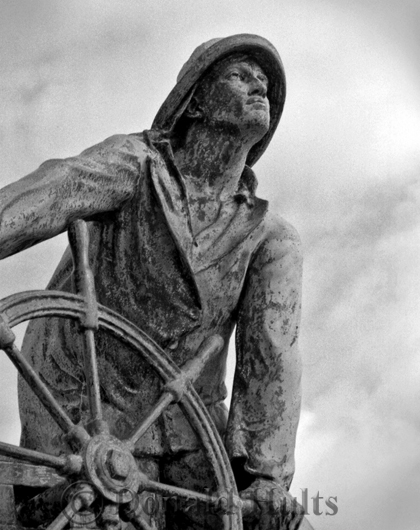 Congressman John Tierney, six of his colleagues in the Massachusetts congressional delegation, and five more from Maine and New Hampshire have written to the acting commerce secretary, formally urging the government to find a way to continue a full subsidy of at-sea monitoring costs while the industry absorbs drastic cuts in catch limits. Read more here
Congressman John Tierney, six of his colleagues in the Massachusetts congressional delegation, and five more from Maine and New Hampshire have written to the acting commerce secretary, formally urging the government to find a way to continue a full subsidy of at-sea monitoring costs while the industry absorbs drastic cuts in catch limits. Read more here
NOAA – Forward Thinking Measures To Benefit Scallop Fishermen and Resouce (sic)
“We have a long term vision for this resource and confidence in our research surveys that show we had unprecedented recruitment (abundance of young scallops) in the Mid-Atlantic in 2012,” said scallop industry representative, Peter Hughes of Atlantic Capes Fisheries. Annual surveys of the scallop resource conducted by NOAA Fisheries, the Virginia Institute for Maine Science and the School of Marine Science and Technology at the University of Massachusetts, Dartmouth, showed a high number of small scallops in 2012, particularly in the Mid-Atlantic. In recent history, the only year when the number of small scallops was greater was in 2001. Read more here
NOAA – Effective Today Trip Limit Adjustments for Groundfish Common Pool Vessels
NOAA Fisheries today announced that effective immediately trip limits for Gulf of Maine cod, Georges Bank cod and Southern New England/Mid-Atlantic yellowtail flounder are increased for common pool vessels fishing under a Northeast multispecies day-at-sea. Also effective immediately, the trip limits for white hake and pollock are decreased for common pool vessels. Proportional trip limit adjustments also have been made for the Handgear B permit for Gulf of Maine and Georges Bank cod, as required by the regulations. These measures remain in effect through the end of the current fishing year, which ends on April 30, 2013. Read the Bulletin here
What the……..Explosive Fed. Mandate Killing Thousands of Red Snapper – Video
“Good Lord,” marine scientist Dr. Bob Shipp said, when Local 15 showed him the video. “As a scientist, I think it’s abominable.” Shipp said the demolitions are frequent, sometimes three a week in the Gulf, but are seldo m video-taped. Shipp also sits on the Gulf Fisheries Management Council, and has been a strong opponent of the demolitions. “It’s a double whammy,” Shipp said, “Not only are we killing a lot of snapper, but we’re also destroying their habitat.” Read more here
m video-taped. Shipp also sits on the Gulf Fisheries Management Council, and has been a strong opponent of the demolitions. “It’s a double whammy,” Shipp said, “Not only are we killing a lot of snapper, but we’re also destroying their habitat.” Read more here
McDonald’s tightlipped on MSC ‘sweetheart deal’ talk
 Fast food giant McDonald’s is paying for use of the Marine Stewardship Council (MSC) logo, a spokesman for the chain told Undercurrent News. McDonald’s announced in late January it is to use the blue MSC logo on its Filet-o-Fish sandwiches and Fish McBites.Industry speculation has focused on the motivation for this move, with sources suggesting it could be so McDonald’s is then able to use if the Russian fishery successfully concludes its MSC,,,,,, Read more here
Fast food giant McDonald’s is paying for use of the Marine Stewardship Council (MSC) logo, a spokesman for the chain told Undercurrent News. McDonald’s announced in late January it is to use the blue MSC logo on its Filet-o-Fish sandwiches and Fish McBites.Industry speculation has focused on the motivation for this move, with sources suggesting it could be so McDonald’s is then able to use if the Russian fishery successfully concludes its MSC,,,,,, Read more here
A watched cod
 The New England cod fishery has existed for hundreds of years, lasting through many major swings in landings. Yes, this is the lowest we’ve ever “seen” the biomass (insofar as our limited data allows us to see), but this is also the warmest we’ve seen the water and the most dogfish we’ve had to contend with. Read more here
The New England cod fishery has existed for hundreds of years, lasting through many major swings in landings. Yes, this is the lowest we’ve ever “seen” the biomass (insofar as our limited data allows us to see), but this is also the warmest we’ve seen the water and the most dogfish we’ve had to contend with. Read more here
Council takes up crab issues – Crew provisions, active participation for quota holders
 The North Pacific Fishery Management Council took final action to increase some community protections for Bering Sea and Aleutian Islands crab fisheries today. The council discussed but did not move forward with regulatory
The North Pacific Fishery Management Council took final action to increase some community protections for Bering Sea and Aleutian Islands crab fisheries today. The council discussed but did not move forward with regulatory  action regarding captain and crew protections in the Bering Sea and Aleutian Islands crab fisheries. The two discussion papers on those issues talked about participation requirements for quota shareholders, and cooperative measures to address crew issues. Read more here
action regarding captain and crew protections in the Bering Sea and Aleutian Islands crab fisheries. The two discussion papers on those issues talked about participation requirements for quota shareholders, and cooperative measures to address crew issues. Read more here
Ocean Industrialization American Samoa – Future leaders briefed on sea mining prospects
Seabed mining may be a foreign idea to American Samoa but other islands of the South Pacific like Papua New Guinea and the Cook islands are already reaping benefits from allowing their seafloor to be exploited for high in demand minerals. Read more here Audio included
Thanks for listening to lobstermen – Jason Day – third-generation lobsterman from Vinalhaven Me.
![]() Arguably the most thankless job in state government is being the commissioner of the Department of Marine Resources. If you get five lobstermen together, they will have at least seven different opinions on what should be done for the future of the lobster industry in Maine. That has not deterred Commissioner Patrick Keliher from visiting fishing towns up and down the coast to hear directly from lobstermen this winter. Read more here
Arguably the most thankless job in state government is being the commissioner of the Department of Marine Resources. If you get five lobstermen together, they will have at least seven different opinions on what should be done for the future of the lobster industry in Maine. That has not deterred Commissioner Patrick Keliher from visiting fishing towns up and down the coast to hear directly from lobstermen this winter. Read more here
KVH’a TrackPhone Is On Track And Ship Shape
 “Our global network is now complete, and our TracPhone product line offers a complete end-to-end solution to quickly and easily bring the benefits of fast, affordable VSAT service to vessels.” The mini-VSAT Broadband network is unique in that it is the only complete, end-to-end solution for offshore connectivity. Read more here
“Our global network is now complete, and our TracPhone product line offers a complete end-to-end solution to quickly and easily bring the benefits of fast, affordable VSAT service to vessels.” The mini-VSAT Broadband network is unique in that it is the only complete, end-to-end solution for offshore connectivity. Read more here

































